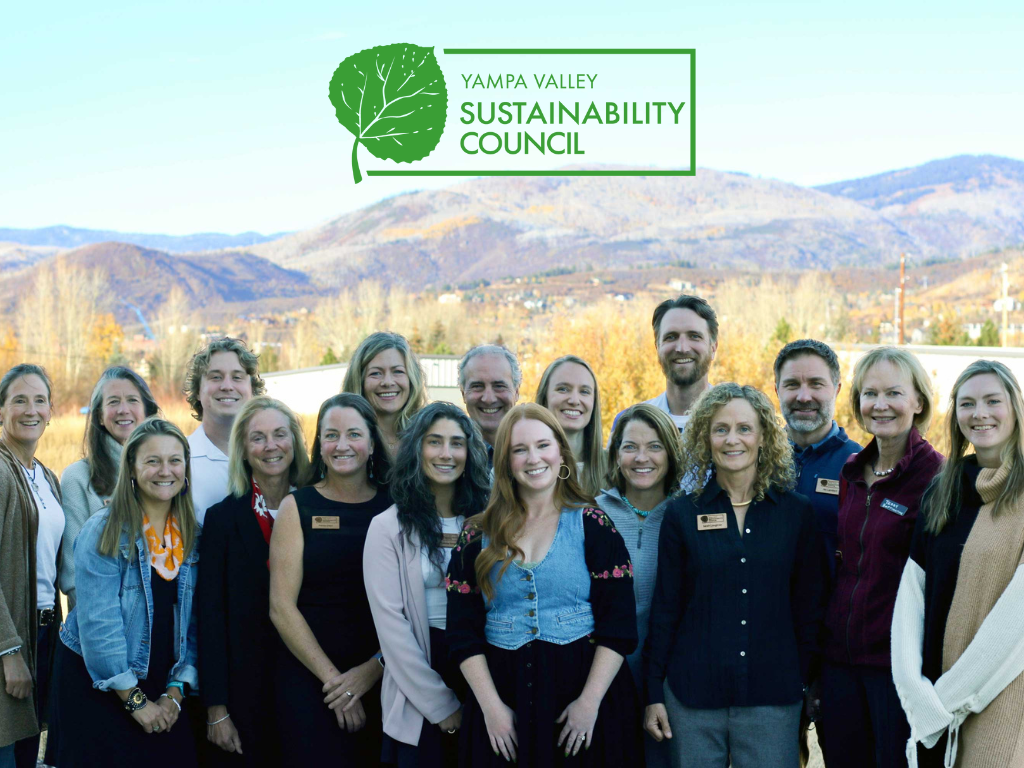JANUARY 25, 2018 BY
Article adapted from the Steamboat Today
Written by Tom Ross
STEAMBOAT SPRINGS — Atmospheric scientist Scott Denning challenged an overflow audience of more than 100 at Library Hall in Steamboat Springs on Tuesday to rise to the level of the historic enterprises their grandparents and parents undertook to transform American society and meet the global challenge of curbing climate change.
Denning explained that economists have estimated it would require 1 percent of the $75 trillion global economy to connect the world to high-capacity electric transmission lines, which would vastly increase the efficiency of the grid — fed by solar farms — and thereby curtail the climate change that threatens our world.
One percent of the global economy amounts to $750 billion a year — more than the United States currently spends on defense. It’s a lot of money, Denning acknowledged, but on a percentage basis that’s the equivalent of what earlier generations spent to modernize their worlds.
If your great-grandparents and grandparents could do it, Denning urged, so can you.
“That’s roughly what our ancestors did 100 years ago when they installed indoor plumbing in every building. They dug up the streets in New York, London and Paris,” Denning said. “They knocked out internal walls in every flat, apartment and home, and built sinks, showers and toilets. And boy, was it worth it. Would you rather save 1 percent of the national economy or still be pooping in the streets?”
His parents’ generation, Denning said, tapped into 1 percent of the national economy to build the interstate highway system and put a man on the moon.
“It’s amazing what people can do when they put their minds to it,” Denning observed. “We spent 1 percent of our economy putting computers and cell phones on every desk in the country. That drove the economy when I was young. It’s OK to spend vast sums of money.”
Focusing on climate change
Denning, a professor at Colorado State University, was speaking at an event hosted by the Yampa Valley Sustainability Council to kick off a year of emphasis on climate change and what it’s implications are. He is the director of education for the Earth System Modeling and Education Institute.
Denning said there is no mystery surrounding the reality that the climate is warming – society has understood the simple science that drives global warming since Abraham Lincoln was president of the United States.
“Scientists have understood it since 1863,” he said.
What scientists have known since the Civil War era, he said, is that the carbon dioxide and water molecules that dominate the atmosphere are prone to fixing heat in the form of photons.
“These molecules absorb slightly different wavelengths of light,” Denning said. “We know that adding CO2 to the atmosphere warms it.”
But that’s not to say that greenhouse gases are a bad thing – without them, Denning added, our planet would be uninhabitable – oceans would be frozen to the sea bed.”
The problem is that humans consuming fossil fuels are increasing the amount of CO2 in the atmosphere that is eager to fix infrared radiation and very reluctant to let go of it.
Rocky Mountain high
Colorado, along with much of the American West, could represent the future of Alpine skiing, Denning observed, because its resorts are at such high elevation. People may still be skiing in Colorado long after the sport has disappeared from California and New England, he ventured, but the base of the chairlifts will be located higher on the mountain.
But that doesn’t mean the Rocky Mountain states will escape the continuing warming of the atmosphere, Denning said.
Quite the opposite – if society doesn’t put the brakes to atmospheric warming, the spring snowmelt Coloradans rely upon for water supply will dwindle, he added. Vegetation will dry earlier in the summer, and soil moisture will also be in decline, exacerbating the intensity of wildfires and the frequency with which they return to previously burned areas.
Denning told his audience that a 10-degree increase in atmospheric warming equates to a difference of 3,000 feet in elevation. Another way to express that relationship is that when the atmosphere warms by 10 degrees, the climate atop Storm Peak would be similar to the climate residents currently experience on the valley floor.
“If we don’t deal with this problem, if we put it off for a very long time,” he said, “we’ll be in big trouble. We have to do the heavy lifting now to avoid the big divergence (in climate conditions) shortly thereafter.”
Denning, whose speech was delivered within 20 miles of the state’s biggest coal mine, ended by denouncing society’s persistence in relying on fossil fuels to meet its energy needs.
“Our wellbeing isn’t based on stuff we dig out of the ground,” he said. “I prefer to believe it comes from ingenuity and creativity. We make our world, not by extracting coal, but from the sweat on our brows and the spark in our souls.”






